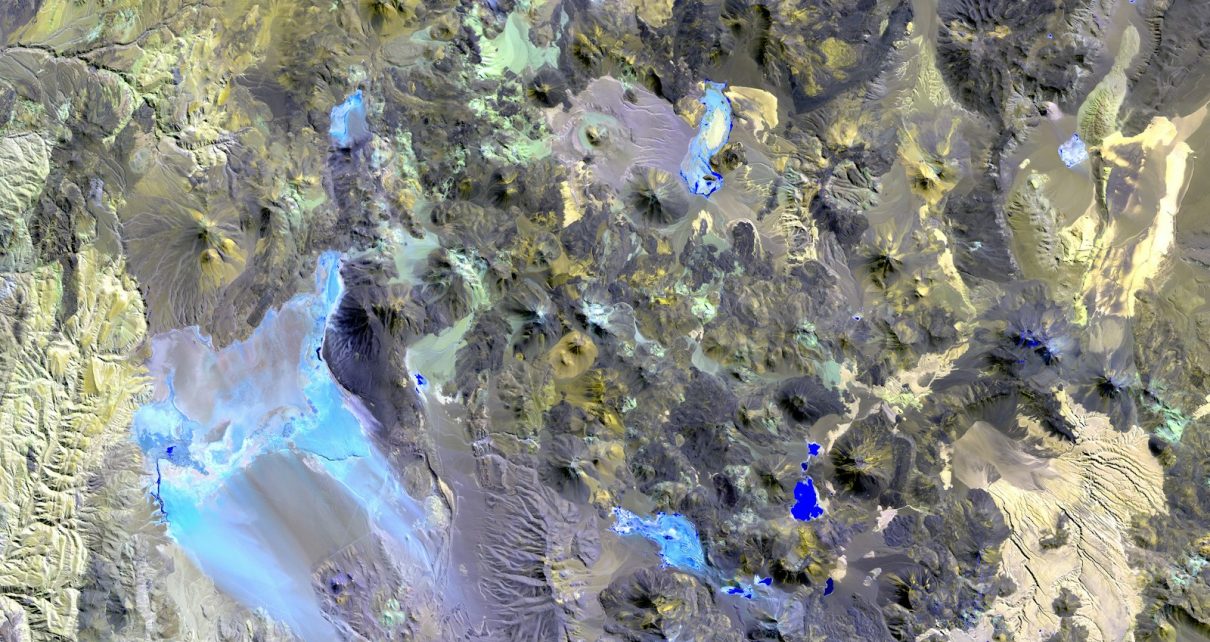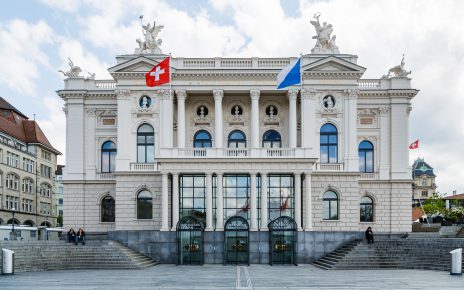Paradise lost or paradise regained? As the sun gently caresses the powdery shores of Bali, painting the sky with vibrant hues, a poignant question looms over this enchanting island paradise. For decades, this exotic jewel nestled in the Indonesian archipelago has beckoned tourists from across the globe with promises of pristine beaches, mystical temples, and a vibrant cultural tapestry. Yet, whispers of discontent have begun to dance amid the silence, as Bali’s top leaders come together to rally for a necessary transformation. In a unique convergence of voices, these visionary minds unite to proclaim that Bali’s tourism must change for the better. The fate of this idyllic haven hangs delicately in the balance, demanding a shift towards sustainable practices, mindful exploration, and profound respect for Mother Nature. Join us as we embark on an exploration of the triumphs, tribulations, and the untold stories that weave the fabric of Bali’s evolving destiny. It is time for a profound awakening – a call for Bali to reclaim its harmonious essence and emerge as a beacon of enlightened tourism.
Bali Tourism’s Need for Sustainable Development and Responsible Practices
Bali Tourism has long been a popular destination for travelers seeking a taste of paradise. However, the rapid growth of tourism has taken its toll on the island’s natural resources and cultural heritage. Top leaders in the industry are now calling for a shift towards sustainable development and responsible practices to ensure the long-term viability of Bali’s tourism industry.
One of the key issues facing Bali’s tourism industry is the environmental impact of mass tourism. The island’s stunning beaches, crystal-clear waters, and lush landscapes are what attract millions of visitors each year. However, unregulated development and irresponsible practices such as waste mismanagement and pollution have led to the degradation of these natural attractions. To address this, top leaders are advocating for the implementation of sustainable practices such as waste reduction and recycling, the use of renewable energy sources, and the preservation of biodiversity through conservation efforts.

Transforming Bali’s Tourism Industry: Enhancing Cultural Preservation and Authentic Experiences
In the wake of Bali’s booming tourism industry, top leaders are calling for a transformative shift that prioritizes cultural preservation and authentic experiences. Recognizing the need for change, industry experts and local government officials are joining forces to reshape Bali’s tourism landscape and create a more sustainable future.
To achieve this vision, several key strategies are being proposed. First and foremost, there is a focus on promoting and celebrating Bali’s unique cultural heritage. From traditional dance performances to local handicraft workshops, initiatives are being developed to showcase the richness and diversity of Balinese traditions. By integrating authentic cultural experiences into the tourism offerings, visitors can gain a deeper understanding and appreciation for the island’s vibrant heritage.
Furthermore, efforts are underway to support and empower local communities. Recognizing their role as custodians of Balinese culture, initiatives are being developed to provide training and support to individuals and communities interested in sharing their traditions with visitors. This not only ensures that the benefits of tourism are distributed more equitably but also helps to encourage the preservation of cultural practices that may be at risk of being lost.
In order to effectively implement these changes, it will require collaboration between government bodies, tourism stakeholders, and the local Balinese community. By working together, it is hoped that a new era of tourism can be ushered in – one that is built on respect for Balinese culture, fosters meaningful connections between visitors and locals, and ensures the long-term sustainability of Bali’s tourism industry.
| Benefits of the Transformative Shift | Challenges Ahead |
|---|---|
| Preservation of Balinese cultural heritage | Resistance to change from some members of the tourism industry |
| Equitable distribution of tourism benefits to local communities | Increased competition from other tourist destinations |
| Creation of a more sustainable tourism industry | Need for strong collaboration and coordination among various stakeholders |

Empowering Local Communities: Balancing Economic Growth and Social Impacts
In the midst of booming tourism in Bali, top leaders are urging for a significant shift in the way the island’s tourism industry operates. While economic growth is essential for the local communities, it’s crucial to find a balance that ensures the social and environmental impacts are considered and addressed. Various stakeholders, including government officials, community leaders, and tourism experts, have come together to discuss the need for a more sustainable approach to tourism in Bali, one that empowers local communities.
Recognizing the challenges that mass tourism brings, these leaders propose a set of initiatives aimed at improving the well-being of the local population while still reaping the benefits of tourism. One key aspect is to prioritize community engagement and involvement in decision-making processes. By including local communities in shaping tourism policies, their voices can be heard, and their needs can be met. Additionally, investing in education and skill development for locals can equip them with the tools necessary to actively participate in the tourism industry, empowering them to become key stakeholders in their own communities.

Fostering Environmental Conservation: Promoting Responsible Tourism Practices in Bali
Bali, often referred to as the “Island of the Gods,” has long been recognized for its breathtaking natural beauty and vibrant culture. However, the rapid growth of tourism in recent years has posed significant threats to the island’s fragile ecological balance. In response, top leaders in the tourism industry are calling for a paradigm shift in the way Bali approaches tourism, emphasizing the urgent need for responsible and sustainable practices.
One of the key challenges faced by Bali is the increasing strain on its natural resources, particularly water. With the rising number of hotels, resorts, and tourist attractions, the demand for water has escalated dramatically. To address this issue, leaders are advocating for the implementation of innovative water management systems, including rainwater harvesting and efficient irrigation techniques. By reducing reliance on traditional water sources and implementing sustainable practices, Bali can mitigate the risk of water scarcity and ensure the long-term preservation of its natural environment.
As the vibrant sun sets over the serene shores of Bali, change lingers in the air, whispering of a brighter future for this tropical haven. The collective voices of top leaders are calling out, urging Bali’s tourism industry to evolve and transform into a force for good. In this kaleidoscopic paradise, where ancient traditions dance with modern aspirations, it is time to pave a sustainable path towards a brighter tomorrow.
Embracing a spirit of balance and harmony, these visionary leaders recognize the urgent need for change. No longer can we turn a blind eye to the plight of Bali’s environment and communities. The time has come to redefine tourism as a vehicle for alleviating social inequality, respecting cultural heritage, and preserving the natural wonders that make Bali so enchanting.
A new era of conscious travel beckons, one where the clichéd image of crowded beaches and plastic-laden streets fades away. Instead, we envision a Bali that embraces responsible tourism, where visitors leave not just with Instagrammable snapshots but with a profound connection to the land and its people. It is a place where eco-friendly initiatives flourish, where sustainable practices are the norm, and where respect for the island and its inhabitants prevails.
Imagine a future where tourists and locals coexist harmoniously, where the benefits of tourism extend beyond big hotels and reach the hands and hearts of the island’s artisans and farmers. Picture a Bali where the scent of freshly harvested coffee beans fills the air, where breathtaking landscapes are preserved, and local traditions are celebrated with reverence. It is a place where sustainability and authenticity become the soul of tourism, and the beauty of Bali is safeguarded for generations to come.
As we part ways, let us envision a metamorphosis in which Bali emerges as a beacon of conscious tourism. Together, let us pave the way for change, for innovation, and for a Bali that treasures its cultural heritage and natural wonders above all. With enlightened leaders guiding the way, there is hope that Bali’s tourism will evolve, embracing its potential to create abundant opportunities, unite communities, and protect the exquisite island that we all hold dear.
And so, dear reader, as you traverse the realms of Bali, remember the whispers of change that linger in the air. Join the movement towards a better Bali, a place where the grandeur of its nature is preserved, its culture cherished, and its people empowered. Together, let us redefine Bali’s tourism, as it transforms into an inspiring model for sustainable travel, setting a precedent for destinations worldwide.





